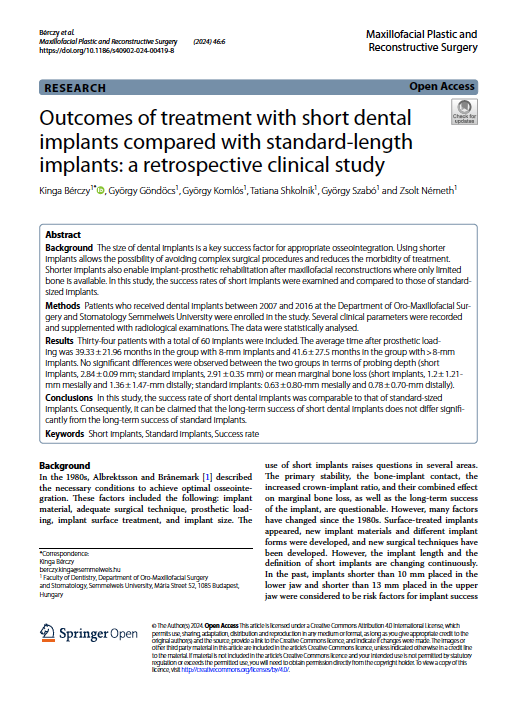ABSTRACT
Background: The size of dental implants is a key success factor for appropriate osseointegration. Using shorter implants allows the possibility of avoiding complex surgical procedures and reduces the morbidity of treatment. Shorter implants also enable implant-prosthetic rehabilitation after maxillofacial reconstructions where only limited bone is available. In this study, the success rates of short implants were examined and compared to those of standardsized implants.
Methods: Patients who received dental implants between 2007 and 2016 at the Department of Oro-Maxillofacial Surgery and Stomatology Semmelweis University were enrolled in the study. Several clinical parameters were recorded and supplemented with radiological examinations. The data were statistically analysed.
Results: Thirty-four patients with a total of 60 implants were included. The average time after prosthetic loading was 39.33 ± 21.96 months in the group with 8-mm implants and 41.6 ± 27.5 months in the group with > 8-mm implants. No significant differences were observed between the two groups in terms of probing depth (short implants, 2.84 ± 0.09 mm; standard implants, 2.91 ± 0.35 mm) or mean marginal bone loss (short implants, 1.2 ± 1.21- mm mesially and 1.36 ± 1.47-mm distally; standard implants: 0.63 ± 0.80-mm mesially and 0.78 ± 0.70-mm distally).
Conclusions: In this study, the success rate of short dental implants was comparable to that of standard-sized implants. Consequently, it can be claimed that the long-term success of short dental implants does not differ significantly from the long-term success of standard implants.
Find the full article below:

